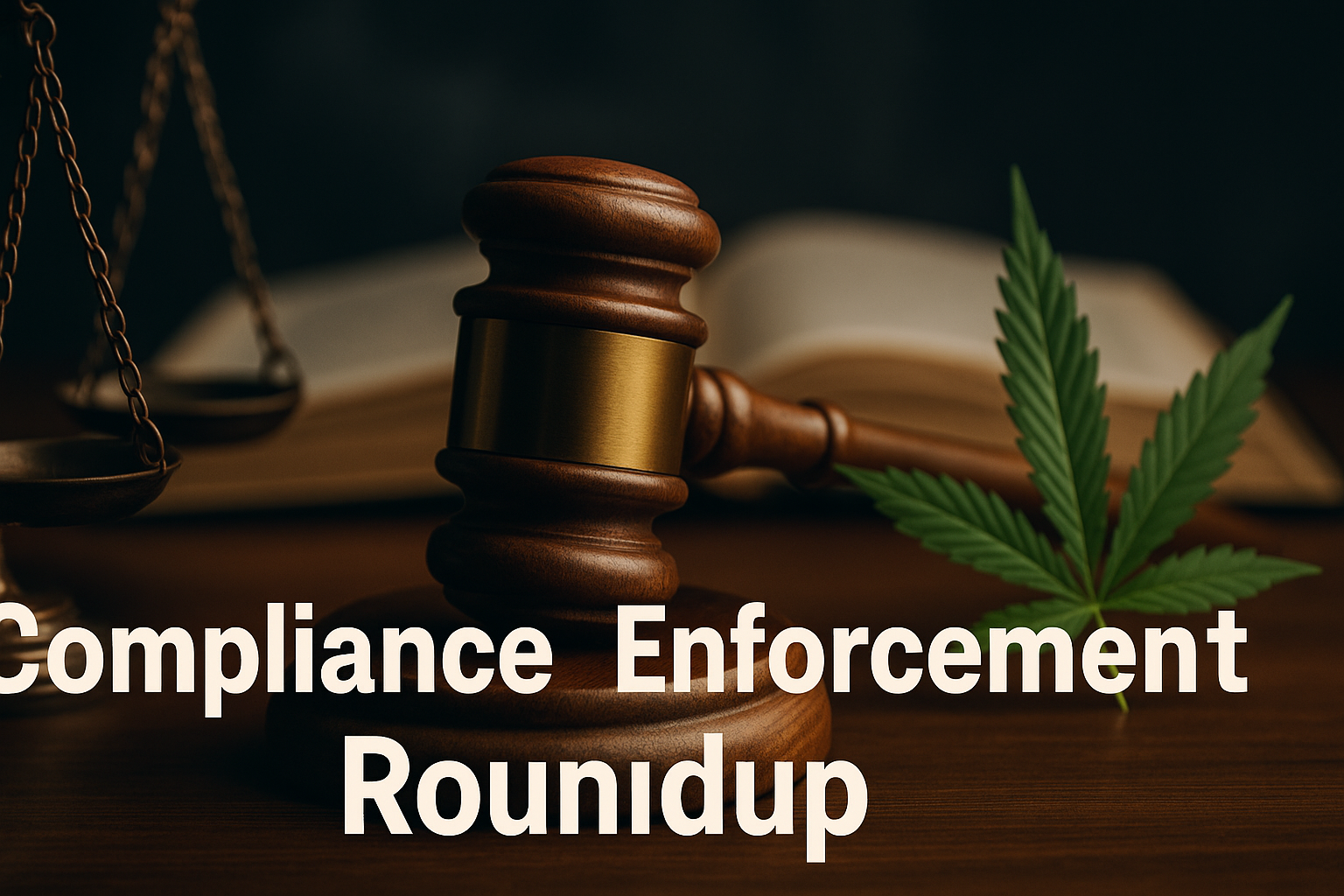
How today’s enforcement actions can help you stay off tomorrow’s front page
Between tighter state budgets and mounting public-health scrutiny, hemp and cannabis regulators are writing ever-bigger tickets—and they’re making examples of businesses that miss the mark. Below, we break down four headline-making cases from the past year, extract the key take-aways, and show how tools like CannabisRegulations.ai can keep you compliant and calm instead of fined and frazzled.
What happened?
Planet Zaza, an East Haven, CT smoke shop licensed only for electronic-cigarette sales, repeatedly sold high-THC products—some mimicking kids’ snacks—to adults and minors alike. After six failed compliance checks, the Department of Consumer Protection suspended the license, and a judge levied $4.93 million in civil penalties (New Haven Register.)
Lesson learned
Know (and stay inside) the four corners of your license.
• Verify whether you hold a cannabis or tobacco license before stocking THC products.
• Train staff on age verification and product category rules.
How the AI helps
A 10-second query to a Connecticut chatbot—“May a retail tobacco licensee sell delta-9 gummies?” —would have produced the statutory citation barring the sale and saved millions in fines.
What happened?
Colorado’s Marijuana Enforcement Division (MED) flagged a batch of Wyld Peach 2:1 gummies for dosage mislabeling, triggering a product hold and brand-reputation damage for one of the country’s largest edibles makers (avenuesrecovery.com)
Lesson learned
Potency and ingredient accuracy are non-negotiable.
• Adopt batch-level label checks against Certificates of Analysis (COAs).
• Keep audit trails showing who verified every label update.
How the AI helps
Upload a COA or label text and ask “Does this meet Colorado Rule 3-105 on edible potency labeling?”—the chatbot responds with a pass/fail and cites the rule.
What happened?
Curio Wellness—active in multiple states—sponsored an all-ages music festival booth and a 5K race. Maryland regulators fined two Curio divisions $8,000 for violating advertising rules that require 85 % of the audience to be 21+ (MJBizDaily.)
Lesson learned
Never copy-paste compliance playbooks between states.
• Each jurisdiction has unique caps on audience age, imagery, health claims, and location-based ads.
• Central marketing teams must run jurisdictional checks before every campaign.
How the AI helps
Ask the Maryland agent: “Can we sponsor an outdoor race if participants under 21 may be present?” The platform surfaces COMAR 10.62- xxxxx with the 85 % rule, preventing the misstep.
What happened?
After internal testing found yeast-and-mold contamination, Colorado producer Bud & Mary’s alerted retailers and regulators a month before an official advisory, voluntarily recalling affected flower lots (https://www.kktv.com) No penalties were issued, and public statements framed the brand as safety-first.
Lesson learned
Self-reporting and swift corrective action can turn a crisis into credibility.
• Build SOPs that trigger recalls the moment internal QC flags a hazard.
• Communicate transparently with regulators and customers.
How the AI helps
Use the “Recall Readiness” workflow: enter batch and lab data, and the system walks you through notification templates, Metrc lock-downs, and destruction protocols—and can pull state specific forms.

Our expert-enhanced platform delivers: